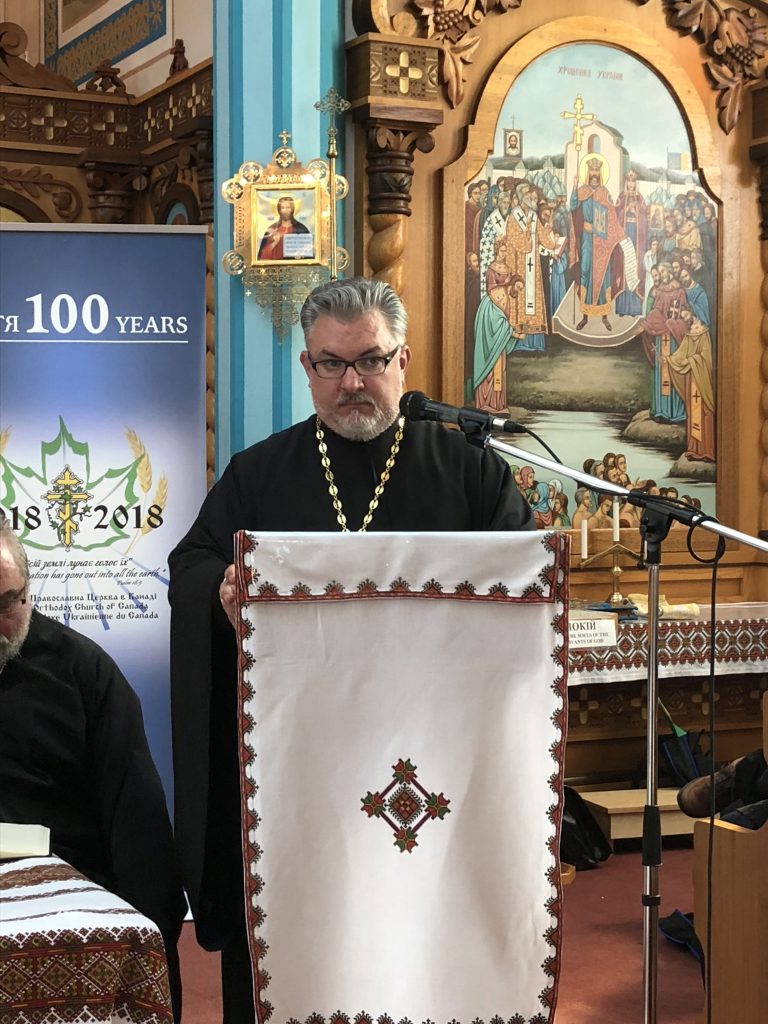
Parish and “Spiritual Community”: A reflection at the threshold of the new ecclesiastical year
By Fr. Andrew Jarmus
Director of Missions, Education and Communications
Winnipeg, Manitoba
Sometimes titles can be deceiving. Recently, I was given a copy of “Divine Ascent: A Journal of Orthodox Faith”, published by St. John of Shanghai Monastery, in California. One of the articles in the journal discussed the nature of the Church’s pastoral ministry during the time of the USSR. Since I teach pastoral theology at our seminary, St. Andrew’s College, I thought it could be of value in the further development of my lectures. What I came upon in the article, among other things, was a gem on an insight that has a bearing on all parishes, large or small.
The author of the article, an Archpriest Vladimir Vorobeyov, writes: “The Church [under communist oppression] lost everything… Deprived of their administrative and economic cares and responsibilities, bishops and priests gave themselves entirely to the divine services, prayer and care of the soul.” Here is a classic “finding-the-good-in-a-bad-situation” scenario. Having Her administrative authority taken away from Her through communist persecution freed the Church to focus more intentionally on the spiritual aspects of Her life… which, of course, is the fundamental work of the Church.
The result of this new focus on “the one thing needful” (Luke 10:42) was the emergence of what became known as “spiritual communities”. The author describes spiritual communities in the following way: “…spiritual communities grow around zealous bishops or priests – spiritual fathers, according to the principle of nurturing (discipleship), regular confession and continual spiritual guidance… Members of ‘spiritual communities’ (or ‘families of repentance,’ or ‘spiritual families’ as these were called earlier) frequently call themselves spiritual children of their spiritual father, and consider each other spiritual brothers and sisters”. The bedrock of such spiritual communities is the frequent participation in the Holy Eucharist and other Holy Mysteries, which give such communities their essential unity and strength. “[Members of these communities] lay all their hopes on the grace of God, living chastely and purely, frequently partaking in the Holy Mysteries of Christ.”
As we find ourselves at the beginning of a New Church Year, these words give us sound advice. There are many concerns that we have in our communities: increasing our membership; developing resources and programming to minister to the needs of our members and adherents; building a sense of fellowship and community among us, etc. In all of this, however, our most important concern should be building our parishes as “spiritual communities”, based on the principles of unconditional love of God and neighbour, life-long spiritual growth, and mutual accountability in matters affecting our parish life. In other words, the most important task is making sure that we are basing everything on Christ, His life, His teaching… His Good News.
Regardless of the size of a parish, or how often it’s members gather together, the key is, “What are we doing when we are together?” Ultimately, we must identify ourselves as (and therefore act as) a “spiritual family” founded in the Fatherhood of God, formed by the Truth of His Son our Lord Jesus Christ, and nourished by the Holy Spirit through our frequent participation in the Holy Mysteries – the first among them being the Holy Eucharist. With this in place, the rest will follow naturally.
